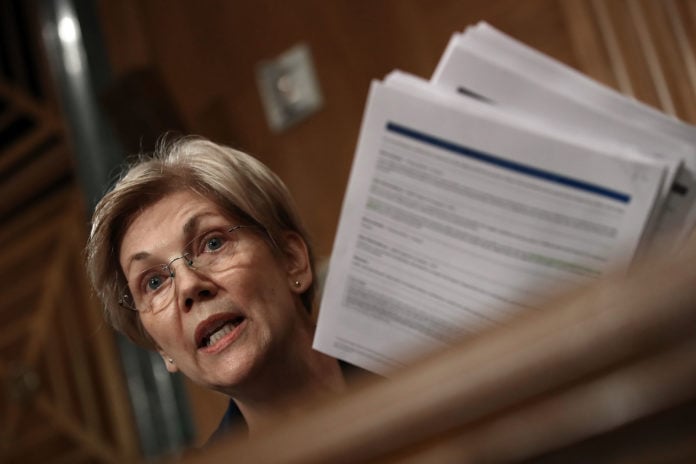If Wells Fargo & Co. needed incentives to alter its business practices, it got some this month.
The Los Angeles city attorney reached a historic $50 million settlement with the bank over allegations its employees opened more than 1.5 million unauthorized bank accounts and applied for hundreds of thousands of credit cards without customer consent. It was slapped with $100 million in penalties by the federal Consumer Financial Protection Bureau and owes $35 million in fees to the Office of the Comptroller of the Currency. And its chief executive was hauled in front of Congress last week to answer for the company’s behavior.
The episode illustrates how fraught incentive programs in banking, sales, and real estate industries are with potential for abuse.
Promotions, merit raises, and, in some instances, financial bonuses are powerful tools, but incentives must be monitored with checks and balances, said Kevin Murphy, a professor of finance at USC’s Marshall School of Business. Employees should only be rewarded when they legitimately create value for the company, not simply game the system to make it appear that way.
“Certainly the Wells Fargo case isn’t unique,” said Murphy. “It’s always easier to find cases of dysfunctional incentives than functional ones.”
Incentive to cheat
Former Wells Fargo employees detailed a work environment that included aggressive sales quotas, unreasonable performance expectations, and the constant threat of job loss in a conference call with media last week. Khalid Taha, a personal banker in San Diego who worked for Wells Fargo for three years, said his 12-hour workdays were driven by pressure to open new accounts and credit cards.
While he acknowledged there were financial motivations to sell, the strongest incentive was performing well in order to avoid disciplinary action.
“If I didn’t meet my sales goals, I could get written up and risk being fired,” said Taha.
Sen. Elizabeth Warren echoed some of Taha’s sentiments during a Senate Banking Committee hearing last week, when Wells Fargo Chief Executive John Stumpf faced grueling questions from legislators. Warren chastised Stumpf for his decision not to resign; his “gutless leadership”; and for putting the “squeeze” on employees to cross-sell, convincing existing customers to open new accounts with the bank.
She also admonished him for not returning any of his compensation and not firing any senior-level management.
“Evidently, your definition of accountable is to push the blame to your low-level employees who don’t have the money for a fancy PR firm to defend themselves,” she said.
The bank fired some 5,300 lower-level employees and agreed to do away with certain sales goals in its retail banking group.
While Wells Fargo and the banking industry are on the hot seat, the corruptive power of incentives has a long history in Southern California.
In 1992, the California Department of Consumer Affairs charged Sears Roebuck & Co. with fraud after the company was accused of recommending costly, unnecessary auto repairs to its customers in order to rack up commissions. While Sears didn’t admit wrongdoing, the company did agree to eliminate the commission system and instead reward employees for high levels of customer satisfaction. It was also forced to dole out $46.6 million in customer coupons as part of a settlement with the state agency.
More than a decade later, Countrywide Financial Corp. began dishing out home loans to nearly anyone who wanted one, encouraging borrowers to opt for the loan that gave the lender the biggest commission – even when it wasn’t in a borrower’s best interest. This behavior contributed to the subprime crisis of the mid-2000s, resulting in widespread mortgage defaults and contributing to a crippling recession.
Clawback clause
The risk of fraud in incentive programs can be mediated by establishing internal controls and monitoring, forensic accountant Annette Stalker, owner of Stalker Forensics in Granite Bay, said in an email. Businesses should also establish a reporting system that allows employees and customers to anonymously report any procedural or ethical violations.
Top management has to lead by example, she said, and demonstrate their commitment to ethical treatment of customers.
“The most fundamental fraud prevention tool is establishing an appropriate ethical tone at the top of an organization,” Stalker said.
Some businesses have also begun implementing a “clawback” provision into their contracts and bylaws, which dictates that certain compensation can be rescinded if it’s found to have been secured through fraudulent means.
Wells Fargo’s board is considering whether to clawback a portion of former consumer banking head Carrie Tolstedt’s $125 million payout, because she oversaw the unit where the fake accounts were created. Tolstedt is to retire at the end of the year.
With all the potential for abuse, USC’s Murphy said incentives shouldn’t be abandoned altogether, just better monitored.
“I’ve got to believe that the right answer is don’t throw the baby out with the bathwater, just take the temperature of the bathwater once in a while,” said Murphy.

